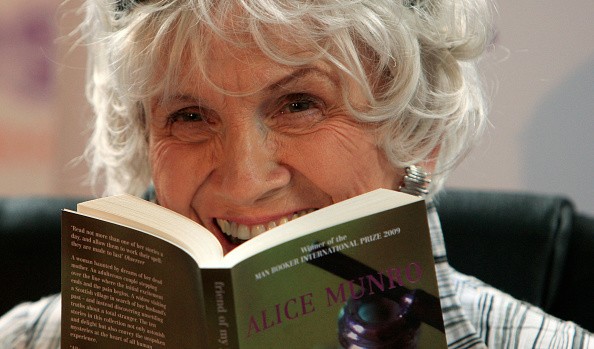
Nobel laureate Alice Munro, who examined everyday life through the lens of short fiction for more than 60 years, died on Monday night at her home in Port Hope, Ontario. She was 92.
The short story writer had suffered from dementia for more than a decade.
For years, Munro had been in poor health and often discussed retiring, a decision made official following the publication of the author's 2012 collection, 'Dear Life.'
Munro revealed in 2009 that she had received treatment for cancer and had a coronary bypass surgery.
She belonged to the rare breed of writers, like Katherine Anne Porter and Raymond Carver, who succeeded greatly when establishing their names in the notoriously challenging field of short stories. Her stories, many of which dealt with women navigating complex desires at various phases of their lives, were so warmly welcomed and enthusiastically read that she attracted a whole new generation of readers.
"Books seem to me to be magic, and I wanted to be part of the magic," she told The Guardian of her childhood reading habits. "Books were so important to me. They were far more important than life."
In 1968, Munro's first big break came in when her collection of short stories, 'Dance of the Happy Shades,' which included fifteen of her earlier works, was published. The book was well-received by critics and was awarded Canada's esteemed Governor General's Award for Fiction in the same year.
Furthermore, she has published 14 collections of short stories throughout her writing career. She often contributed to literary journals like 'The New Yorker' and 'Tamarack Review.'
In some of her later collections, like 'The Moons of Jupiter' and 'The Progress of Love,' Munro played with the conventional short story format by introducing nonlinear narrative structures. It was also well known that she would often rewrite and revise her stories, even after publication.